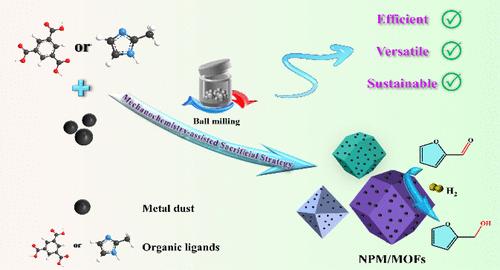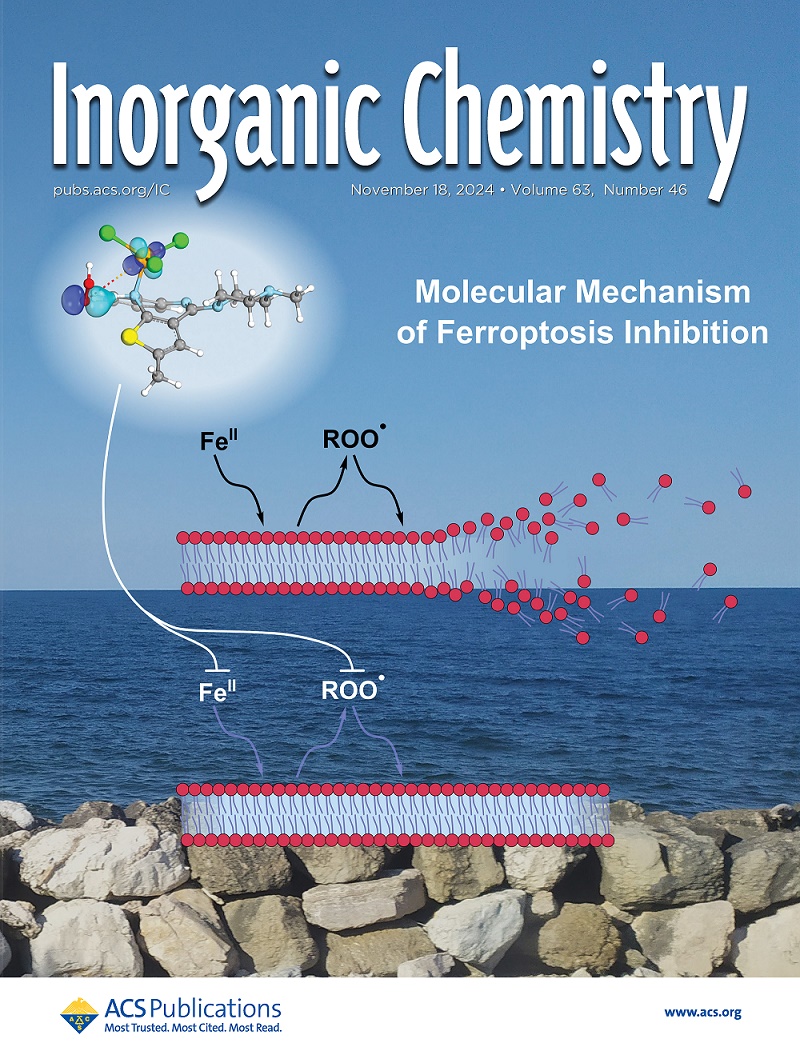机械化学辅助牺牲策略制备mof负载的非贵金属纳米催化剂
IF 4.7
2区 化学
Q1 CHEMISTRY, INORGANIC & NUCLEAR
引用次数: 0
摘要
关于mof负载的非贵金属纳米催化剂(NPM/ mof)的报道仍然有限,主要是由于制备非贵金属纳米颗粒的条件苛刻和mof稳定性差之间的冲突;NPM/ mof的制备一直是一个挑战。在这里,我们展示了一种简单、通用和可持续的方法,通过简单的球磨直接反应商业金属粉尘和配体来制造NPM/ mof。在这种方法中,金属粉尘被原位牺牲以形成相应的mof,同时蚀刻成更小的纳米颗粒。所开发的方法完全绕过了制备非贵金属纳米颗粒通常需要的苛刻条件,同时保留了mof的多孔结构。通过这种简单的方法,制备了几种具有完整孔隙结构的NPM/ mof。此外,这种方法消耗微量的溶剂,符合可持续合成的概念。此外,还对合成的Co/ZIF-67纳米催化剂进行了不饱和醛加氢实验;它表现出与许多贵金属纳米催化剂相当的特殊催化性能。本文章由计算机程序翻译,如有差异,请以英文原文为准。

Fabricating MOF-Supported Nonprecious Metal Nanocatalysts from the Commercial Metal Dusts via a Mechanochemistry-Assisted Sacrificial Strategy
The reports on MOFs supported nonprecious metal nanocatalysts (NPM/MOFs) remain limited, primarily due to the conflict between the harsh conditions for the preparation of nonprecious metal nanoparticles and the poor stability of MOFs; the fabrication of NPM/MOFs has long been a challenge. Herein, we demonstrate a facile, versatile, and sustainable method to fabricate NPM/MOFs by directly reacting commercial metal dusts with the ligands through simple ball milling. In this approach, the metal dusts were sacrificed in situ to form the corresponding MOFs and etched into smaller nanoparticles at the same time. The developed approach entirely circumvents the harsh conditions typically required for the preparation of nonprecious metal nanoparticles, while preserving the porous structures of the MOFs. By this facile approach, several NPM/MOFs with intact pore structures were prepared. Moreover, this approach consumes trace amounts of solvent, conforming to the concept of sustainable synthesis. In addition, the synthesized Co/ZIF-67 nanocatalyst was tested in the hydrogenation of unsaturated aldehydes; it exhibits an exceptionally catalytic performance that is comparable to many noble metal nanocatalysts.
求助全文
通过发布文献求助,成功后即可免费获取论文全文。
去求助
来源期刊

Inorganic Chemistry
化学-无机化学与核化学
CiteScore
7.60
自引率
13.00%
发文量
1960
审稿时长
1.9 months
期刊介绍:
Inorganic Chemistry publishes fundamental studies in all phases of inorganic chemistry. Coverage includes experimental and theoretical reports on quantitative studies of structure and thermodynamics, kinetics, mechanisms of inorganic reactions, bioinorganic chemistry, and relevant aspects of organometallic chemistry, solid-state phenomena, and chemical bonding theory. Emphasis is placed on the synthesis, structure, thermodynamics, reactivity, spectroscopy, and bonding properties of significant new and known compounds.
 求助内容:
求助内容: 应助结果提醒方式:
应助结果提醒方式:


